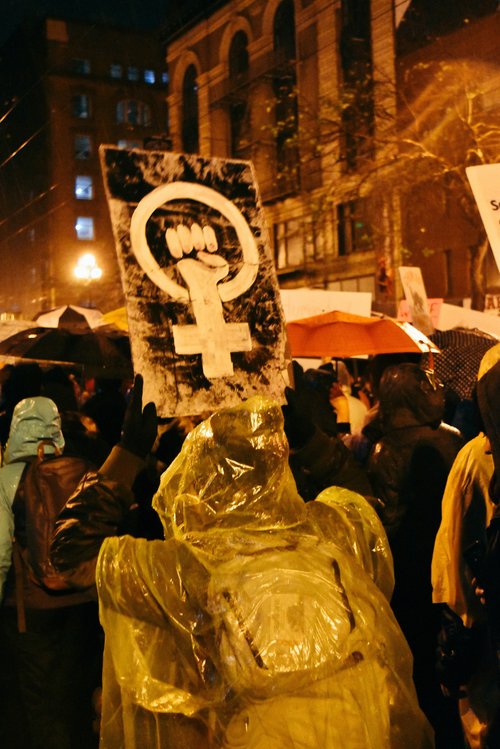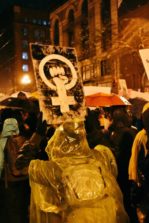
“I recall seeing a little kid, not more than four feet tall, marching with the protestors and banging on his little drum. The smile on that kid’s face was uplifting. To see such a bond of community and people coming together to fight injustices … is heartwarming” says junior Tilman Voorsanger of his participation in The Women’s March in San Francisco.
High school and college students have always been known for taking an active role in advocacy and protesting. With the various controversies surrounding the election, the current Congress and the Trump presidency, this has become even more the case.
Sophomore Anahi Rosales began her activism as a participant in the student walk out in November. She chose to become an activist because of Donald Trump’s remarks regarding immigrants and immigration policy. She explains, “His remarks about immigrants really upset me … sometimes I feel like he blames problems on only Mexican immigrants. That’s not okay.”
Rosales also became an activist to honor and support members of her family who are immigrants to the United States. She says, “my grandmother was an immigrant and eventually gained her citizenship. She worked really hard … she raised four kids while trying to find money, working job to job.” The desire to protect the ones she loves drives Rosales to speak out.
For many, getting involved is a reaction to the increasingly partisan atmosphere of the country. Voorsanger attributes one of the defining events of his activism to when Merrick Garland, an Obama appointee for the Supreme Court, was never given a confirmation hearing by Republican-controlled Senate. “With Garland, it really became evident to me that people in government don’t care about morals … the fact that our government can shut down over solely partisan principal ideologies hurts me,” says Voorsanger.
Of course, speaking out is not exclusive to liberals or those who oppose Trump. Junior Max Liu, a conservative, is a strong advocate for free speech. He explains “I really think people should be free to express any opinion they have openly. Free speech is appropriate as long as it does not lead to physical harm of other people.” He adds that free speech must apply to all in order for activism to be effective.
While sympathetic to protesting and rallies, Liu is a strong believer that structured debate is the most powerful form of activism and political conversation. Liu says, “I often have debates with my father … who is a liberal. I think it’s important to learn about the opposing points of view from him … there aren’t really any emotional effects of our debates … we talk about facts and don’t get angry or upset at ideas we don’t like.”
The emotional aspect of activism is more evident during protests and rallies such as the ones Voorsanger attended. He reveals that, to a degree, it’s scary being in a mass of protestors — a lot of things could go wrong and a few people could ruin the purpose and shift the mood.
This danger has become evident in during some recent protests such as the riot that took place at Berkeley in early February when a group of rioters interrupted a peaceful protest opposing controversial right-wing speaker Milo Yiannopoulos visiting campus. Liu says, “The violent protest that we just saw in Berkeley over Milo Yiannopoulos really hurt the cause of the protestors and showed the [political] right … the importance of protecting their free speech.”
Despite the dangers, Voorsanger appreciates the empowerment and unity felt when marching in a group of activists. During his participation in the Women’s March, Voorsanger recalls “I could not see the end of the line of protestors. I went up into a skyrise to try and see the end of the line and there were protesters as far up the street as I could see. There is more power in that kind of mass, and with more protestors we can influence the government more. To the point, we need to keep the protests up.”

Liu has not felt the need for activism from the political right. Liu and a few of his friends have considered bringing a Trump flag to school as a sign of support for the president, but have not done so as of now.
To the point of acceptable activism on and off campus, Liu says “I think it’s good to push the limit between what is socially acceptable … as long as it does not physically harm someone else or infringe on their private rights, it’s fine.”
Both Liu and Voorsanger see educating oneself on the issues from multiple perspectives before formulating an opinion as important to the political. Voorsanger urges those thinking about attending protests, “don’t be instantly reactive … be educated on the issues. Know the nuance and the other side’s hardships before you shout about it.”



